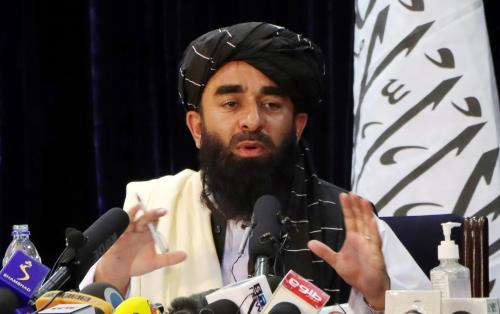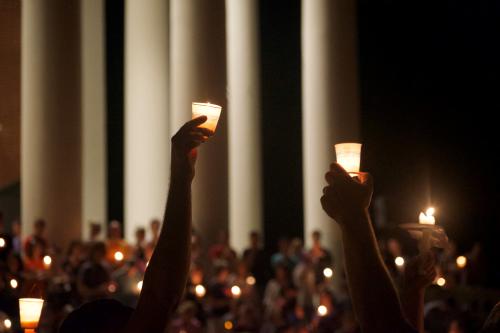Remittance “Supertax” Costs African Countries Nearly $2 Billion per Year
On Wednesday, the UK-based Overseas Development Institute (ODI) released a report estimating that excess money transfer fees—incurred when individuals abroad send money to contacts in African countries—amount to $1.8 billion annually. The report, co-authored by Brookings Center for Universal Education Nonresident Senior Fellow and ODI Executive Director Kevin Watkins, finds that the cost to transfer money to sub-Saharan Africa remains at an average rate of 12.3 percent per $200 (about $25), far above the global average of 7.2 percent and the G-8’s target rate of 5 percent.
Considering the increased use of mobile banking and online services, one might assume that middlemen’s fees would be decreasing, notes The Economist, but this is not the case. Western Union and MoneyGram continue to dominate the money transfer market in sub-Saharan Africa, resulting in a lack of competition and limited transparency in foreign exchange fees. ODI argues that reducing money transfer fees would have an enormously beneficial effect on African economies: $1.8 billion, for example, could fund primary education for 14 million children.
United Nations Compound Attacked and Bentiu Seized by Rebels in South Sudan
The United Nations Mission in South Sudan (UNMISS) compound in Bor was attacked on Thursday, resulting in dozens of civilian casualties. U.N. Secretary-General Ban Ki-moon stated that the attack constituted a war crime and was a “serious escalation” of the ongoing crisis in the country. South Sudan sent troops to secure the compound, but no one has yet been arrested over the attack.
Further north in Unity State, rebel forces took control of Bentiu from the South Sudanese army earlier this week. Hundreds are feared dead in the fighting, which has also forced the shutdown of oil-producing operations in the area. The U.S. Department of State condemned all attacks this week, urging all parties to abide by the January 23 Cessation of Hostilities agreement and threatening further sanctions on “anyone violating human rights or obstructing the peace process in South Sudan.”
Nigeria Experiences Tragedies with Abuja Bombing and Kidnapping of 129 Schoolgirls
An explosion at a bus station outside central Abuja killed more than 70 and injured over 120 individuals on Monday morning. No group has yet claimed responsibility, but Nigerian President Goodluck Jonathan has blamed the Islamist group Boko Haram, which is based in northeastern Nigeria. They are also assumed to be behind the abduction of more than 100 schoolgirls from their hostel in Chibok, in the northeastern state of Borno. Although Nigerian military officials stated that they had freed nearly all the girls on Wednesday, it later recanted this claim, acknowledging that only 30 girls were accounted for out of 129.
If Boko Haram is determined to be responsible for the Abuja attack, The New York Times contends, it would represent a “significant amplification” of the group’s attempts to challenge central authority in Nigeria. The attack also magnifies existing security concerns for the World Economic Forum on Africa, which is scheduled to be held in Abuja in early May. However, in The Wall Street Journal, Ian Birrell argues that it would be a mistake to let ongoing violence detract from the economic and entrepreneurial success that Nigeria is currently experiencing.
The Brookings Institution is committed to quality, independence, and impact.
We are supported by a diverse array of funders. In line with our values and policies, each Brookings publication represents the sole views of its author(s).




Commentary
Africa in the News: Remittances in Africa Are “Super-Taxed,” South Sudan Conflict Escalates, and Attacks in Nigeria Affect Hundreds
April 18, 2014